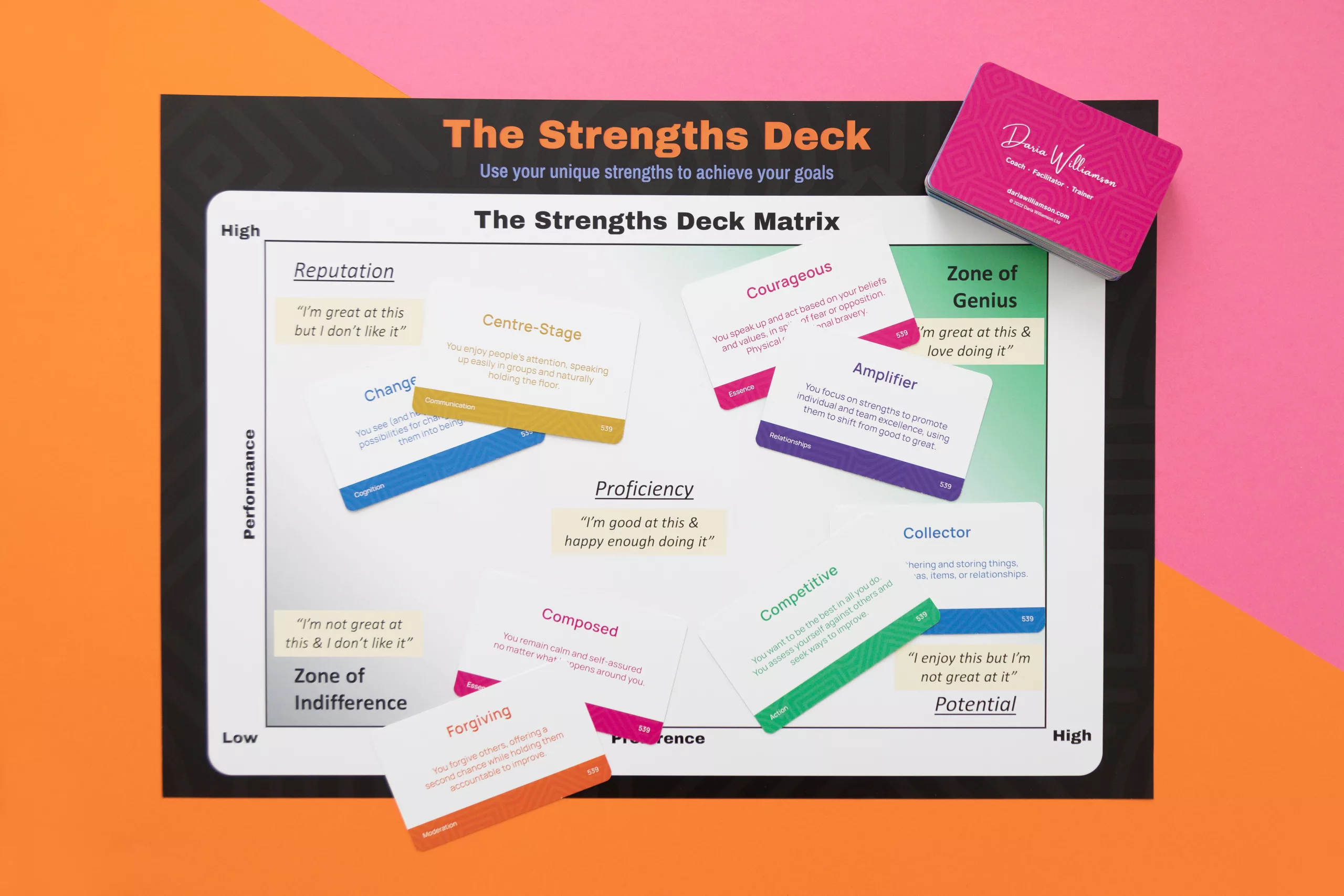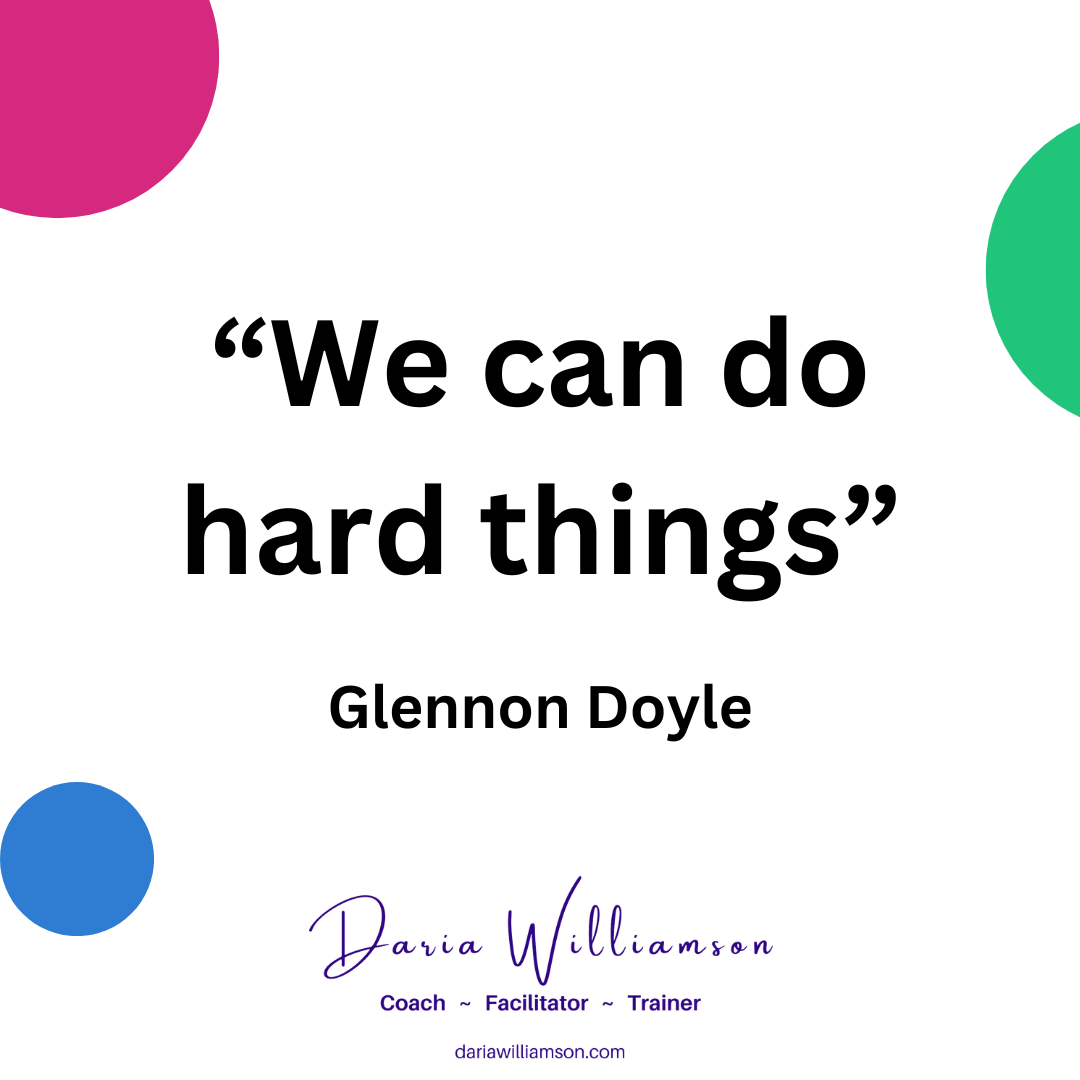This strategy sounds counter-intuitive, but the “know nothing, be curious” approach puts us on the pathway to developing fresh perspectives and gaining insights. And from that, we can generate great ideas.
You can layer this strategy on top of the first four: having lots of ideas, reading, watching and listening broadly, carving out blank space, and involving others.
When you're knowing, you're not learning or growing
Our culture seriously over-rates the importance of appearing to know everything. How often do people try to come up with an answer rather than say “I don’t know”? This aversion to not-knowing is a big barrier to learning and growth.
Why? If someone won’t admit they don’t know something, they’re not open to learning.
There are all sorts of reasons that we aren’t open to learning – we may have been punished or laughed at for not knowing something when we were younger, or we could be trying to impress others, or shore up our sense of self-confidence. No matter the reason, when we are busy “knowing” we aren’t receptive to new ideas and information. And that limits our growth and development.
Edited 9th November 2021: I’ve struck out the following paragraphs as a result of this article, which explains that the Dunning-Kruger effect may actually be a quirk of how the self-assessments in the original studies were measured and calculated, rather than a cognitive bias. In the interests of demonstrating ongoing learning, I’m leaving in the references to the Dunning-Kruger effect (because who knows, someone might later end up proving that it is a cognitive bias, and then I won’t have to rewrite everything!)
And worse still, as soon as we learn a little about something, we think that we know far more that we actually do! This is the Dunning-Kruger effect – we often don’t know what we don’t know.
The graph to the right shows the relationship between knowledge and confidence. Note that the expert (the last point on the right) has a lower level of confidence than the newbie (the second point from the left). The expert senses there is much more left for them to learn, and realises that they don’t know everything. Meanwhile the newbie doesn’t have any context to understand how much more there is to know.
Don’t feel bad if you realise that you have experienced the Dunning-Kruger effect – we all do on a regular basis. It’s an in-built cognitive bias, so it’s not something we can just “unlearn”. But we can learn ways to recognise when it might be operating, and to reduce its effect.
Recognising when Dunning-Kruger is operating
Here’s a quick cheat sheet to tell if Dunning-Kruger might be operating.
You (or someone else):
has just started learning about the thing.are/is feeling super-excited about this new thing.think/s the new thing could the be answer you/they have been looking for or the solution to all your/their problems.believe/s that you’ve/they’ve quickly grasped the concept and can easily see how to apply it to your/their life.haven’t read/watched/learned about the new thing from multiple perspectives (including ones that are critical of the new thing) – this is why one of the great ideas strategies is to read, watch and listen broadly.can’t explain the concept to a kid (“If you can’t explain it to a six year old, you don’t understand it yourself” Albert Einstein).
The antidote: Know nothing, be curious
How to know nothing
Of course it’s impossible to actually “know nothing”. According to this source, we encounter 34GB of data daily, and according to this source, the average brain has capacity for around 2.5 petabytes of data (or 2.6 million GB). We can’t forget all of that data, nor would we want to!
There’s a thought experiment we can try, which helps us see the Dunning-Kruger effect in operation. When asked to their level of knowledge of how a common piece of equipment operates, e.g. a toilet, TV, or blender, most people are pretty confident (hello Dunning-Kruger!) But, when asked to explain step-by-step exactly how it works, most people quickly want to revise their rating! Someone in a learner’s mindset would act as if they don’t know anything about how the toilet, TV or blender works, and then go find out from someone who does (which is a way of involving others in your thinking).
It's like riding a bicycle
Most of us probably can’t recall the first time we understood what a bike is, but we can probably remember learning to ride one. The uncertainty, the clumsiness, a touch of fear, the feeling that your feet weren’t cooperating. You had to be mindful, paying attention to everything, because you didn’t know which bits were important. And when you got mindless and stopped paying attention, you quickly realised your mistake, as the ground rushed up to meet you (unless, unlike me, you had training wheels!)
In the learner’s mindset, we delve deeply into a subject, paying attention to every aspect. We don’t know what’s important and what we can safely ignore; everything gets equal attention. So, one of the best ways to avoid the Dunning-Kruger effect is to pretend that you don’t know anything. Then, ask yourself who knows a lot about it, and go learn from them. It will feel awkward at first, but once you get the hang of being a learner, it’s just like riding a bicycle!
How to be curious
Let's start with curiosity's bad reputation
There’s an old saying: “curiosity killed the cat”. I reckon that someone who had something to hide made this saying up to keep themselves from being found out! Ask yourself “Who benefits if I can’t ask questions?”. Usually, when curiosity is deliberately squashed, someone is trying to maintain their status or control over resources.
If you encounter a situation where questions are viewed as threats, you might wish to exit the situation ASAP. Not only is that environment ripe for coercion and manipulation, but it’s also one where learning and growth will be completely stifled. And that’s a sure-fire way to boredom and irrelevance. Who wants to be part of that?
"But why?"
If you’ve got kids, have friends with kids, met a kid, or indeed have ever been a kid, you’ll be familiar with the dreaded “But why?” question chain. And you know that an inevitable outcome of the question chain is someone yelling (or wanting to yell), “Because I said so”!
Maybe this is partly why we are reluctant to ask questions. At some point, we upset someone we care about when we chose an inconvenient time to try to satisfy our curiosity. And so we decided that asking questions is bad. Then there’s the other aspect I’ve mentioned previously – our culture places excessive value on knowing and certainty.
What does it take to be curious?
There are several key aspects to being curious:
- accepting that we don’t (and can’t) know everything.
- accepting that others know things that we don’t.
- being open to uncertainty.
- recognising our motivations when asking questions.
- letting go of the idea of one “right” answer.
Elsewhere in this article, I’ve talked about how we don’t and can’t know everything. And that other people will know things that we can’t or don’t. And I’ve previously written about why we need to embrace uncertainty, and how to go about doing that. I’ve also written about why we ask questions, and how to ask questions for the right reasons.
Letting go of the one "right" answer
The last key element is to let go of the idea of one “right” answer. That is, unless we’re talking about calculating the amount of fuel required to get my plane from here to there. In that case, I want the refuelling crew to get the right answer, first time!
But when we’re dealing with human interactions, innovation, and problem-solving there’s more than one way to skin a cat. Trying to find one right answer wastes time and energy that we could otherwise use to experiment with and tweak our approach. As the saying goes, “Done is better than perfect”.
And aiming for the perfect answer will also stop us from pursuing tangential ideas, stifling our creative thinking. After all, if the 3M engineer who accidentally created low-tack glue had discarded it and kept trying to achieve the super-tack he was aiming for (and, incidentally, if he hadn’t involved others), we would never have had the joy of Post-it® Notes. (See my previous article for one of the reasons why I love Post-it® Notes!)
Other ways to get curious
There’s no two ways around it – curiosity involves questions. Try these ones, or come up with your own:
- How would someone from a different country or culture think about the subject?
- What might your competitors be doing in this area?
- How would you explain it to someone from a different generation?
- Where would someone from another job function focus their attention?
- What questions would a researcher ask?
- How would you know whether you had improved in this area?
Progress check
We’re now half-way through this series. So far, the strategies we’ve covered are:
- Have lots of ideas
- Read, watch and listen broadly
- Carve out blank spaces
- Involve others
- Know nothing, be curious (this article)
There are five more strategies in this series – to read them, jump over to the series page, or scroll down to the bottom of the page to browse my recent articles (and to watch a fascinating video from David Dunning explaining why ignorance fails to recognise itself).
If you want to be notified when I publish new articles and content, sign up for my weekly newsletter below.

Resources:
- The Dunning-Kruger Effect Is Probably Not Real – McGill University
Dunning-Kruger effect – Wikipedia- History Timeline: Post-it® Notes – 3M.
- The Human Brain is Loaded Daily with 34 GB of Information – Tech 21 Century
Dunning-Kruger Effect – Psychology TodayThe Dunning-Kruger Effect Explained – Healthline






4 thoughts on “Great Ideas: Strategy 5 – know nothing, be curious”
Pingback: How to have great ideas: Strategy 6 – use a theme or vision ~ Daria Williamson - Coach, Trainer, Facilitator
Pingback: How to have great ideas: Strategy 7 – don’t pre-judge your ideas ~ Daria Williamson - Coach, Trainer, Facilitator
Pingback: How to have great ideas: Strategy 7 – don’t prejudge your ideas ~ Daria Williamson - Coach, Trainer, Facilitator
Pingback: Great ideas: Strategy 10 – use your strengths
Comments are closed.